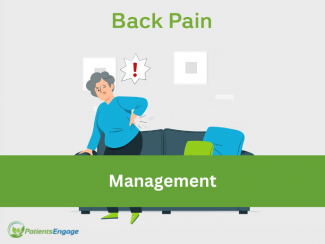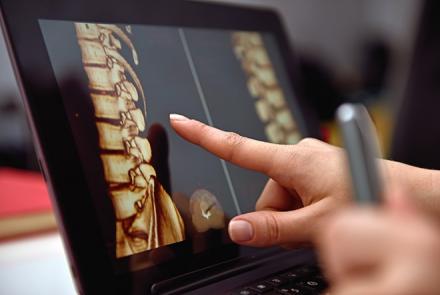Over 600 million worldwide suffered from back pain in 2020, 10% of the global population. This number is expected to grow to over 800 million by 2050 according to a Lancet report.
Back pain is also a significant contributor to societal and economic burden and a growing issue in Asia and Africa. Let us understand it better and work towards preventing this condition.

Back Pain management typically needs an integrative approach - of dealing with the pain but also making lifestyle changes to prevent deterioration and flare ups. Rehabilitative care is a critical element of managing back pain.
According to WHO:
- A multimodal/integrative approach is usually needed.
- The management should support people to make sense of their pain experience from a bio-psycho-social perspective and support their re-engagement in meaningful life activities.
- Advice should validate their pain experience, emphasize reassuring and empowering messages about the prognosis.
- Emphasis should also be put on the importance of remaining physically active and continuing social and valued activities (including work/modified work) for overall health and well-being, approaching rehabilitation in a graded and paced manner, and adopting effective self-care strategies tailored to the individual and their goals.
- Generic (non-personalized) reassurance is less likely to be helpful.
Medications
- Over-the-counter pain killers like Ibuprofen and paracetamol etc. or gels/sprays that can be applied locally. More in the Treatments section
Other Self care Treatments
- Use cold packs to help relieve some back pain and hot packs to increase blood flow and promote healing in the muscles and tissues of the back.
- Limit activities or exercise that cause pain. Gradually ease into your physical activity as tolerated.
- Get physical therapy to help strengthen the muscles that support the back, which can improve mobility, posture, and positioning. Strengthening exercises can also help decrease pain. Check with your doctor or physical therapist before starting any exercise routine.
- Avoid massaging the back without seeing a doctor as some conditions like a prolapsed disc or muscle sprain may worsen with massage.
- Follow the measures mentioned in the prevention section to fortify your back.
- Practice healthy habits such as exercise, relaxation, regular sleep, healthy diet, and quitting smoking.
Changed
16/Aug/2025
Condition

















